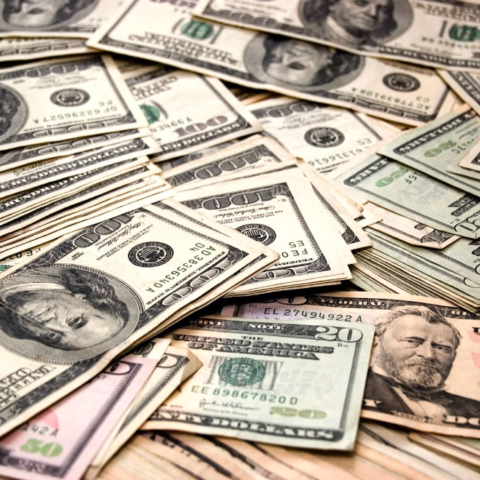By: Robert Jones
 Does anyone remember consumer confidence? There’s a buzz word that no one seems to write about anymore. The index is measured by an independent research group called the Conference Board based on 5,000 households’ current opinions and expectations of the economy, and for years it was seen as a proven indicator of the country’s economic and political future. But recently the country fixed its gaze on the plight of the American worker and forgot about the consumer. This shift isn’t a negative one; it’s simply interesting that although the American worker seems to be en vogue right now, the American spender once held the delicate economy in his hand.
Does anyone remember consumer confidence? There’s a buzz word that no one seems to write about anymore. The index is measured by an independent research group called the Conference Board based on 5,000 households’ current opinions and expectations of the economy, and for years it was seen as a proven indicator of the country’s economic and political future. But recently the country fixed its gaze on the plight of the American worker and forgot about the consumer. This shift isn’t a negative one; it’s simply interesting that although the American worker seems to be en vogue right now, the American spender once held the delicate economy in his hand.
Even though confidence in the economy seems to be on the rise again, one can easily remember a past when Americans were much more despondent. Consumer confidence is easily understood by the drive to spend instead of save, and there’s no doubt that the economy’s former grimness heavily influenced people to hold onto their money instead of spending it. It doesn’t make sense to spend money on a home theater or a koi pond if there might not be enough money for food or gas. But what if luxury is unattractive for an entirely different reason? Maybe the growing sentiment of anger and disgust at the rich caused the drop in economic optimism.
People aren’t so attracted to lavish displays of wealth anymore, and they won’t spend money if they equate consumption and material things with arrogance instead of success. This change in attitude is obvious; TV shows like MTV’s Cribs and The Fabulous Life used to glorify the lavish homes and cars of celebrities, but these shows haven’t aired any new episodes since 2010 and 2008, respectively. Protests such as Occupy Wall Street invoke praise for standing up against the selfish, greedy rich; and the president jabbed at Mitt Romney’s wealth during the second presidential debate, saying, “I don’t look at my pension. It’s not as big as yours, so it doesn’t take as long.” Even “Gangnam Style,” the playful Korean pop song that has accumulated 500 million views on YouTube, is a critique on the wealthy and the social climbers who aspire to be like them. The sentiment is almost inescapable, so it’s logical that it could affect American’s feelings about wealth and, consequently, the economy.
Reaction to Mitt Romney’s fortune is one pointed example of class resentment and can be used to judge Americans’ current feelings about the wealthy and money. The Obama campaign has repeatedly attacked the governor, saying that no one with an elevator in his garage and an “offshore-registered mega-yacht” could possibly understand the troubles of the poor. But these criticisms haven’t been very effective. The sentiment of the Occupy Wall Street movement seems to have calmed down, since theoretically those protestors would have sent Mitt back to Massachusetts once they realized his net worth. Instead, Romney is preparing himself for Election Day; no one can say that his wealth stopped him yet. This discourse, however, does make class attitudes salient in voters’ minds, meaning that consequences could be impending instead of immediate. Consumer confidence may be on the rise now, but it’s harder to say what will happen when the election ends and the American people remember the derision about Mitt Romney’s money.
The rich could have just been an easy target for the incensed American people during the worst part of the recession. Or maybe the protests of 2011 spurred the rich to change their behavior and avoid the rage of the 99 percent. These questions and guesses may not be discussed by the news media since the economic buzzword of the moment seems to be one word instead of two (if you still can’t guess it, it rhymes with “blobs”). It just might be important to consider consumer confidence from another perspective. Maybe people are avoiding spending because they don’t want to be too opulent, and maybe the accusatory stump speeches are affecting the economy more than the candidates realize.

